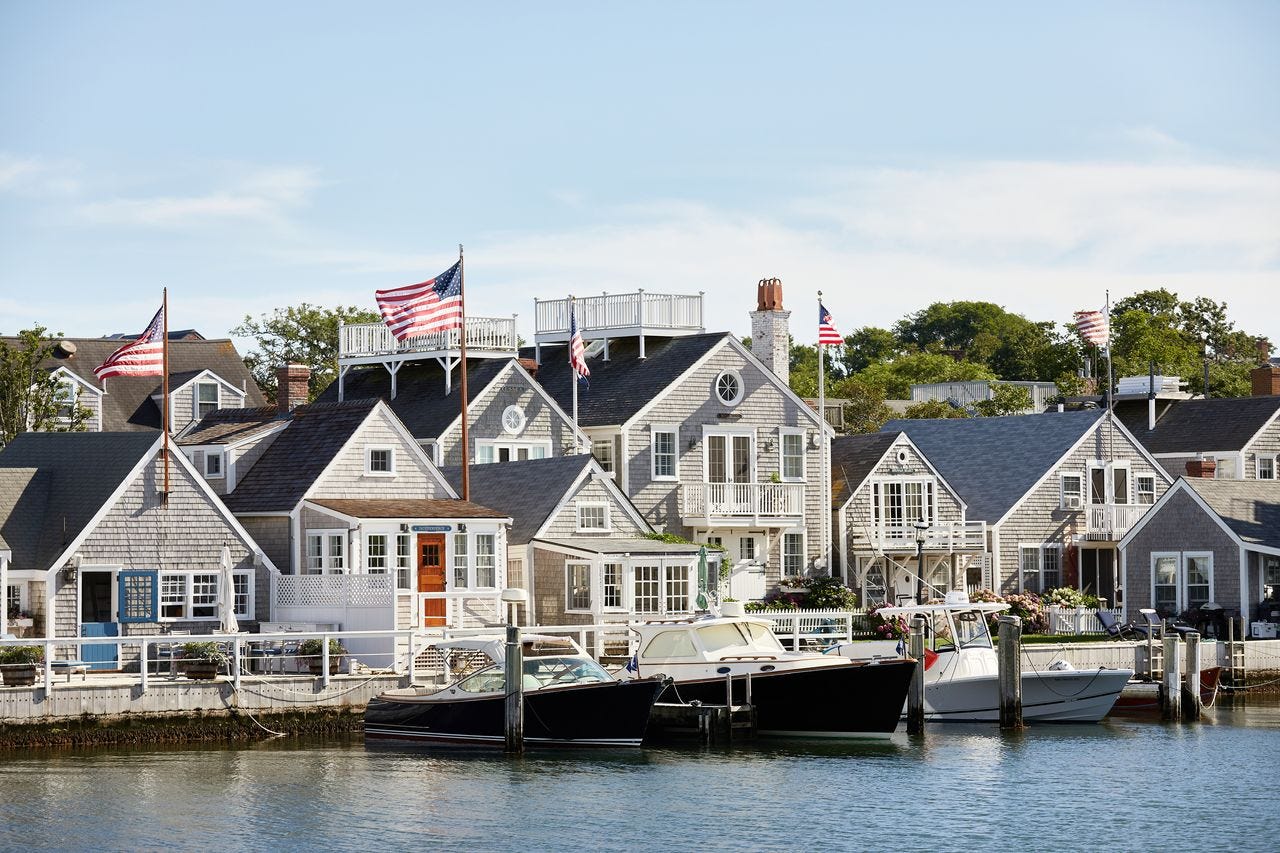What Makes Nantucket Special?
A personal story and a bit of info.
I have often been occupied by this question. I grew up on “the island,” ran away, and was pulled back as an adult. The families of Johnson & Johnson, Blackstone, Charles Schwab and the like choose this place too, despite every option in the world. Nantucket was the fastest growing town in Massachusetts in the last census period, if you exclude a 300 person village on Martha’s Vineyard. The place is getting something right.
Nantucket is the type of place where you go to the library in shorts and run into Stephen Schwarzman talking about global equity markets. He’s worth $41 billion.
For a long time I was convinced it wasn’t special. After graduating from Nantucket High School, where I was voted most likely to “leave and not come back,” I did in-fact leave in a hurry. Nantucket felt limiting. There’s only so many times you can bike to the beach. You meet everyone. The most lucrative job was selling real estate to rich people; it was easy to dream of something more. If you really want to know what it’s like growing up here – picture this. You stay in your favorite hotel for a month too long. Now imagine everyone you know tirelessly works the hotel at the bequest of strangers. That was my experience of growing up on Nantucket. I did not forecast moving back.
I spent seven years searching for what the island lacked. Surely Nantucket could not be the end-all the world had to offer. I tried everything: startups, White House internship, expat life in Asia, Latin America and Europe. The quest did not reach a resolution. So I returned to Nantucket. As the outdoor showers and bike rides to the beach racked back up, I came to realize what I had missed. It was what everyone else had seen the whole time.
Nantucket puts you at ease. Though it’s more than a pretty place. It retains a rural elegance with ample social infrastructure. Most of the world has one or the other. Maine and Sicily are beautiful places, but the quality of social life and services are not there. You start to feel antsy after awhile. New York has the social but not the rural. Nantucket finds a sweet spot.
This rural buzz Nantucket created was many years in the making. The community made a series of good decisions. This is a playbook that other towns can use.
Rural preservation: The Land Bank was established in 1983 which allowed the community to directly profit from climbing real estate values. On every real estate transaction is a 2% fee paid to the Land Bank. The American conception of private property is not a natural fit for a land bank, a communal benefit from private assets. But real estate does not exist in a vacuum. Property value is a function of the nearby restaurants, landscapes, quality of library, etc. A virtuous cycle formed. These funds were well spent, on open space and public places.
Public beaches: The community fights to maintain 350+ years of public beach access. Thousands if we include the native Wampanoags. This is a common thread, there is an erring on the side of public benefit. The culture of Nantucket is one of community over the individual. After all, we are all stuck out here together. Old timers tell stories of people run off the island. Decency matters when there is no anonymity. It’s one big neighborhood. It’s a place where people at least try to get along.
Historical preservation: For a brief spell Nantucket was the whaling capital of the world. The island’s 19th century aesthetic is diligently maintained. The Historic District Commission reviews every real estate development down to the fence height, door color, and shrubbery. As a result we have a visual cohesion which is particularly rare in the U.S. The buildings look like they belong together which reduces visual tension.
Village zoning: Nantucket has a surprisingly permissive zoning code. Many towns limit lots to one dwelling by-right, Nantucket allows three. This coupled with a low minimum lot size in the central island creates a vibrant and walkable core.
As much as I’d love less traffic, take the time to visit Nantucket. The world could learn a thing or two from its success.





